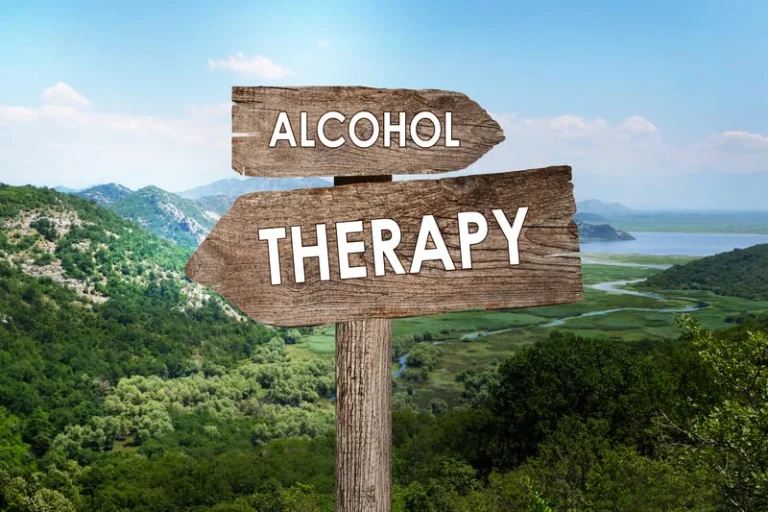
Notably, the vast majority of studies conducted thus far on solitary drinking are cross-sectional, precluding causal interpretations. For instance, how do solitary drinkers experience alcohol intoxication in solitary versus social settings? The evidence reviewed above suggests that solitary drinkers may not expect or obtain the same kind of social rewards from alcohol in social settings, but this needs to be tested in experimental studies that manipulate the context of alcohol consumption.
Your addiction does not have to define who you are.
Social drinking is nowadays considered normal and harmless; this is often reinforced by how the media portrays alcohol. However, social drinking may have some negative effects and hidden risks that you need to be aware of. This article is a complete guide to understanding social drinking and its implications for learning to enjoy alcohol responsibly. Your ongoing recovery depends on continuing mental health treatment, https://ecosoberhouse.com/ learning healthier coping strategies, and making better decisions when dealing with life’s challenges. In order to stay alcohol-free for the long term, you’ll also have to face the underlying problems that led to your alcoholism or alcohol abuse in the first place. Binge drinking can have many of the same long-term effects on your health, relationships, and finances as other types of problem drinking.
Alcoholism and Alcohol Abuse

Small-groups researchers emphasize that a group is not merely a collection of individuals but is a distinct entity unto itself (Levine & Moreland, 1998). Accordingly, one cannot merely assume that the default unit of analysis is the person. Methodologically, group dynamics research has employed observational measures that permit unobtrusive real-time measurement of socio-emotional experience that extend beyond what typically has been used to observe social interaction in the TRT studies addressed above.
Associated Data

Accordingly, the concurrent activity in which an intoxicated drinker engages serves to determine the effects of alcohol. Intoxication during concurrent distraction is thought to weaken stress responding, whereas, without a neutral or pleasantly distracting activity, intoxication is not predicted to generate stress relief, and may even increase anxiety by focusing attention on the then-salient stressor. As noted elsewhere (Hull & Reilly, 1983; Sayette, 1993a) a difficulty in testing self-awareness levels is the possibility that probes for self-awareness (e.g., Yankofsky, Wilson, Adler, Hay, & Vrana, 1986) may influence the cognitive processes being measured. According to Jay Hull (1981, 1987), alcohol’s TRT properties are cognitively mediated. By impairing the encoding of information in terms of its self-relevance, alcohol intoxication reduces self-awareness.

This result would appear to be especially important; the need to belong and to bond with others is widely held to be a powerful motivating force (Baumeister & Leary, 1995). Furthermore, these robust effects appeared at both individual and group levels of analysis. Alcohol also increased time participants spent speaking to one another (and reduced moments of silence) and self-reported bonding (Sayette et al., 2012a). Consistent with the findings of Pliner and Cappell (1974), my colleagues and I have been guided by the premise that to comprehensively identify the effects of alcohol on positive affect in social drinkers, one must evaluate such participants in a social context (Sayette et al., 2012a). In addition to recruiting groups of strangers, our research methods diverge in several important ways from the bulk of research examining the hedonic effects of alcohol.
Cognitive–behavioral therapy can take place one-on-one with a therapist or in small groups. This form of therapy is focused on identifying the feelings and situations (called “cues”) that contribute to heavy drinking and managing stress that can lead to a return to drinking. The goal is to change the thought processes that lead to alcohol misuse and to develop the skills necessary to cope with everyday situations that might trigger alcohol misuse. Alcoholics Anonymous® (also known as “AA”) and other 12-step programs provide peer support for people quitting or cutting back on their drinking. Combined with treatment led by health care providers, mutual-support groups can offer a valuable added layer of support. If you can control and stop your drinking, and alcohol is not causing any negative consequences, moderate drinking is considered a part of a healthy lifestyle.
Interestingly, when higher doses of alcohol were used than in the original Wilson and Abrams (1977; Abrams & Wilson, 1979) studies, their findings suggested a primarily pharmacological effect on stress response dampening4 (see also Donohue, Curtin, Patrick, & Lang, 2007). In contrast to existing pharmacological theories linking TRT to depressant effects of alcohol, Wilson’s research emphasized drinking expectancies. His early studies used a low dose of alcohol and the balanced placebo factorial design that had been popularized by Marlatt (e.g., Marlatt, Deming, & Reed, 1973), in which ethanol content and instructions regarding the alcohol content of the beverage were orthogonally manipulated. More recently, there has been interest in integrating pharmacological and expectancy factors. For instance, tension-reducing expectancies are more likely to be endorsed while blood alcohol levels are at peak than while they are dropping (Kushner et al., 2000). The idea that alcohol might be consumed to improve our darker moods has been apparent to poets, writers, and philosophers for millennia (Sayette, 1999a).
- I kept taking another sip, waiting for the chain reaction to fire off; the one that usually takes me to the end of the bottle, but it never did.
- As with the TRT, however, laboratory findings regarding positive emotional enhancement have proven to be inconsistent (Sayette, Fairbairn, & Creswell, 2016).
- These types of intensive longitudinal designs would be particularly useful with adolescent populations who are not legally permitted to drink alcohol in experimental lab settings.
- After the individual receives personalized feedback, the counselor will work with them to set goals and provide ideas for helping to make a change.
- Currently, there are three medications approved for AUD in the United States, and they are an effective and important aid in the treatment of people with this condition.
- Band officials said they’ve reactivated the suit over the proposed legislation dealing with water treatment, which is currently before a Parliamentary committee.
Warning Signs Social Drinking May Be Turning into Problem Drinking
- I was most inspired, though, by his willingness to allow the data to inform our positions, even in cases in which new results did not support the findings of his earlier studies.
- However, the CDC considers moderate drinking as two drinks per day for males or one drink per day for females.
- Here’s your guide to finding any of the facilities in the Aultman family of health services, including maps and contacts.
If you find yourself relating to even a few of these statements, stop drinking, socially or otherwise, and seek the help of an addiction treatment specialist. Meta-analysis of superordinate factors and underlying variables of interest and solitary drinking. If your family or friends have tried to help, but you’ve ignored their pleas, it’s time to listen and do what’s best for your life and future. By the time you realize or admit you have a problem, alcohol may have negatively affected your life and health in many ways. Although not all binge drinkers are alcoholics, their pattern of extreme drinking is just as dangerous. If you have a parent or family member with an alcohol problem, you should monitor your drinking carefully.
However, drinking doesn’t disrupt their life or create serious physical, mental or personal problems. People with unhealthy alcohol use (also called alcohol use disorder or AUD) can’t always predict how much they will drink, when they will stop, or what they will do while drinking. And it can be common for people with alcohol use disorder to deny the negative effects of drinking social drinking and drinking problem or that they even have a problem. Although most social drinkers don’t become alcoholics, there are risks involved. People with unhealthy alcohol use (also called alcohol use disorder or AUD) can’t always predict how much they will drink, when they will stop or what they will do while drinking. Many people with AUD do recover, but setbacks are common among people in treatment.

